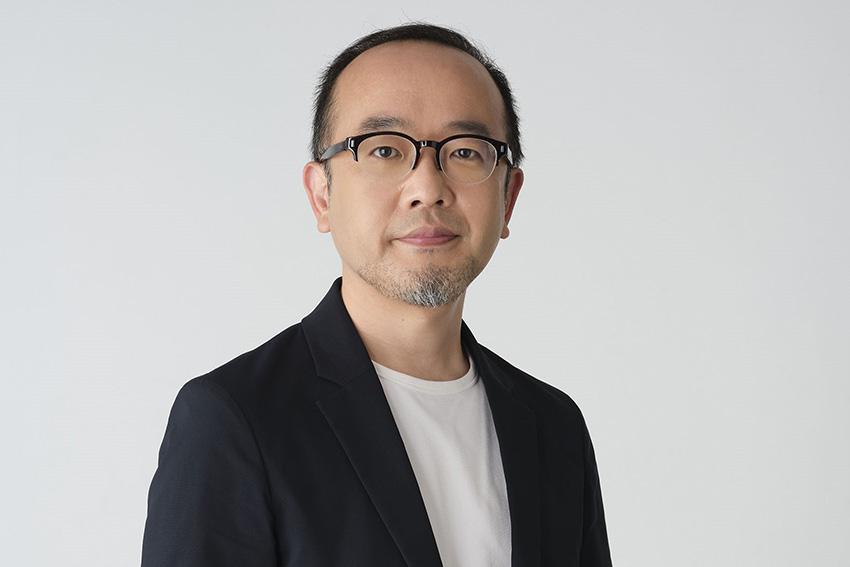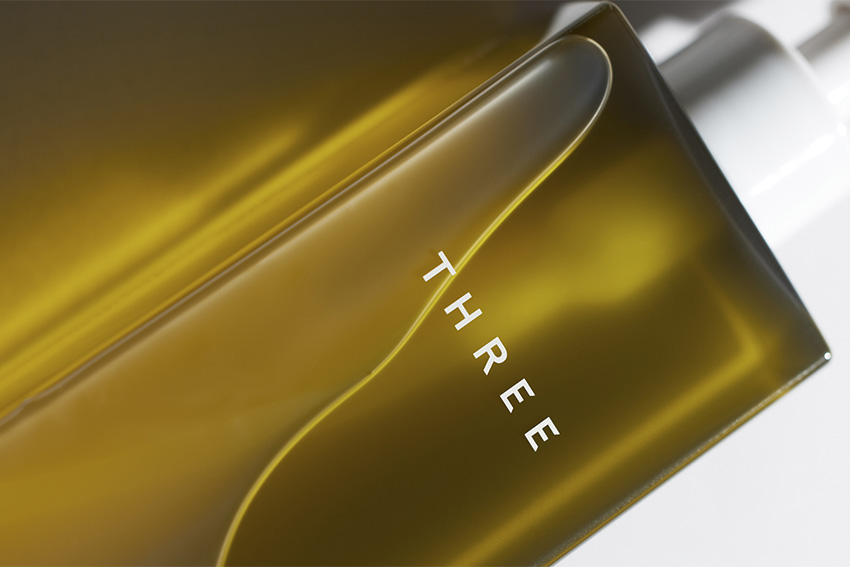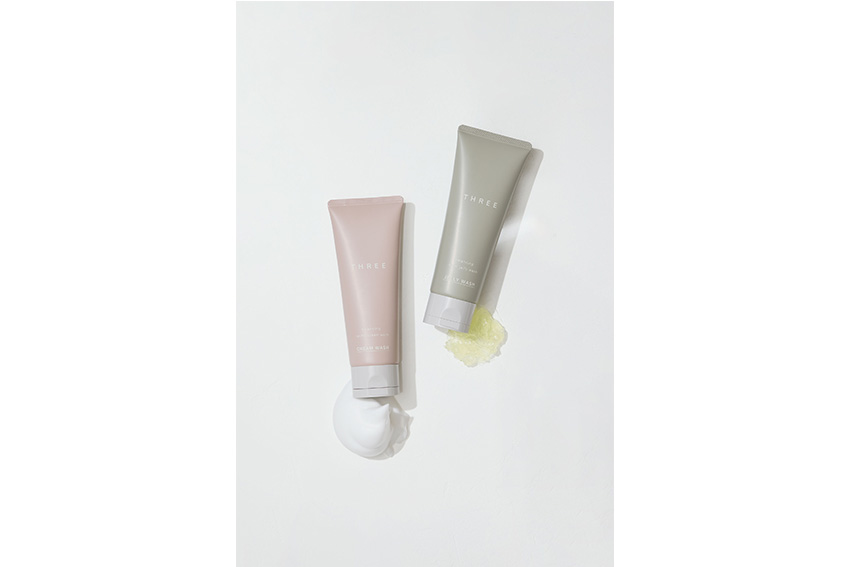Acro is the best partner of choice for customers to discover their own infinite possibilities of beauty.

Japanese beauty brands face strong competition from Western and Korean beauty brands known for their marketing prowess. However, many active ingredients in global beauty products originate from Japan, which is home to robust ODM manufacturers. Additionally, a growing global trend favors Japan’s less is more philosophy, which emphasizes high-value products with fewer, more effective ingredients. What are the strengths of Japanese beauty brands and how do you think they compare to other regional competitors?
The uniqueness seen in Japanese products is influenced by Japanese characteristics and the surrounding environment. Japan is scarce in resources and is an island nation. The characteristic I am referring to is the pursuit of one thing to the extreme, and the fact that Japanese products have developed to be very simple yet very functional is influenced by this Japanese mindset.
Going overseas, I see a fundamental weakness in Japanese marketing. However, people recognize Japanese products for functionality and quality, and that’s been shared.
Before, ACRO had an importing business representing overseas brands in Japan. Many of the brands that were under contract or considered as potential contracts at the time experienced a high incidence of products failing to meet quality standards during the inspection stage after importation. In some cases, as much as half of the goods were unsellable at the delivery stage. For example, there might be smudges on the packaging print, or foundation powder might have some vapor or be outside the container. This kind of packaging is not considered acceptable in Japan.
These issues might mean that in overseas markets, high-quality packaging is not required, but the strength of the Japanese companies is attention to detail, including the smaller details like packaging. Japanese products are known for their high quality through automotive and electronics exports, so it’s important that cosmetics also leverage that consumer awareness and provide high quality.
There are expected to be a record 35 million inbound tourists coming to Japan, and some experts expect that to go over 100 million in upcoming years. When tourists come to Japan, they are often surprised to see how clean the country is, so we want to convey the Japanese mindset and culture through our products by applying good marketing methods and showing the functionality and high quality of our products.
To follow up on the tourism issue, can you talk about some things that you’re doing to market your products to those inbound tourists, not only in terms of making immediate short-term sales but also building long-term brand awareness for your company?
Rather than focusing on inbound tourists, we think it’s important to brand ourselves as a beauty company. The strategy is to spread local awareness of our brand in each local area, and when inbound tourists come, have them purchase our products in Japan.
Over the next fifteen years, Japan expects significant demographic shifts characterized by both an aging and a declining population. With a declining population, a shrinking domestic market is inevitable, and as the population ages, you can expect to see more cosmetic products targeting an older demographic. Can you talk about both the challenges and the opportunities this creates for your company and how you are navigating the challenges and capitalizing on some of the new opportunities?
Of our customer portfolio, 60% are 30 years old or younger, which accounts for 30% of the population in Japan, so we understand that the number of our target customers is declining. We have a direct sales channel through department stores, and through that, we have realized that customers in their 20s are usually interested in makeup cosmetics, whereas customers over 30 years are more interested in skincare. Therefore, we have two strategies.
This first is a horizontal operation overseas. The demographic composition differs across the globe, depending on the region. Some areas are dominated by a younger population, and some are aging, so the first strategy focuses on countries that have a large or growing population in their 20s and 30s, which are the target of our brands.
Having said that, we value our second strategy more, so we have now evolved our mindset to see the market not only for beauty but for wellness. Our focus is not to provide skin care to beautify the skin but rather to provide a holistic beauty approach by balancing the mind and the body to achieve a beautiful exterior. That is the definition of our holistic beauty, and we value the essential oil and the aroma that support this fine balance.
ACRO, as part of the POLA ORBIS Group, has done extensive skin research for quite some time. Japanese companies have focused for a long time on skincare, and that has allowed Japan to be a global leader. Our company's unique definition of beauty is the result of a balanced connection between the mind, body, and skin. We offer cosmetics that combine nature and science. For example, our bestseller is a cleansing oil.

THREE Balancing Cleansing Oil N
The functionality is to remove surface dirt from the skin. The way to use this product is to first take the oil, inhale the aroma, and then apply it on your face and wash it off. We are approaching the mind and the body through the inhalation of the natural aroma, so our approach is not only the exterior but also the interior, our aim is to achieve holistic beauty by nurturing both the mind and the body through the natural aroma of our cleansing products. The key lies in how the natural ingredients are combined in the cleansing oil and the unique benefits they deliver. We believe that the most effective approach is a fusion of over 90% plant-derived ingredients and the power of science, maximizing the potential of natural components.
As for our marketing, there are three major beauty magazines in Japan. For example, BEST COSMETICS is released every year in November. What’s unique about them is the fragrance category, and we appeared in that magazine between prestigious western brands.
Our approach differs completely from that of luxurious western brands. We are unique in having a high percentage of natural elements like essential oil, which has functionality for both the mind and the body. Due to pharmaceutical laws, we cannot call out specifically how our essential oil has a better impact, but there is scientific evidence.
You mentioned your transformation into more of a wellness company, but you’re also transforming in other ways, most notably with your products becoming more gender-fluid. Your FIVEISM x THREE brand initially established a foundation for a gender-fluid borderless concept, but you are now integrating this concept into the THREE brand itself. While gender fluidity goes beyond only targeting the men’s market as it continues to appeal to the women’s market as well, there are certainly growing opportunities within the segment. What was the motivation behind integrating this concept of gender fluidity into your THREE brand, and what new opportunities do you see by doing this?
Our focus was first on makeup and skincare for women, but by evolving into a wellness company from a beauty company, we realize that wellness applies regardless of gender, age, nationality, or race. Therefore, we are now providing our wellness-focused products through both our THREE and FIVEISM x THREE brands. One example is a face wash.

THREE Balancing Nectar Cream Wash/THREE Balancing Stem Jelly Wash
We have two types. We have one in a pink package that is a more general foam type for cosmetics washing. The other one is in a grey package and is a gel type, which is quite rare. Generally, in the case of facial cleansers, foam types overwhelmingly dominate sales compared to gel types. However, in our case, gel types sell better. Gel types are particularly favored by men due to their ease of use and functionality, which is why sales of the brand's unique gel-type cleansers are higher.
We have labeled the pink foam face wash as beauty, whereas we labeled the grey gel type as wellness, and wellness attracts a wider range of customers. For something that is universally done among both women and men, like face washing, wellness attracts more people. Likewise, fragrance is universal among both women and men, so we want to brand ourselves as a functional aroma company.
Do you see this concept of gender fluidity being embraced on an international scale, and if so, do you think integrating this idea into your products will make you more popular globally?
Regarding gender fluidity, we are currently operating in six different countries, and we see different market demands for each. We have department stores as sales channels across these nations, but the ratio of men visiting is something like 20% or less, and in Japan, it is even lower, like 10%. That’s the case for department stores, but for freestanding or individual retail stores, there are more men coming to purchase. A gender-fluid brand that pursues wellness attracts many male customers.
Microbeads have been a big trend in face washes in recent years, but now we’re seeing pushback against that. For example, there is legislation in Europe to limit the use of microplastics in those products because they can get into the water supply. Can you tell us how you are ensuring your products are environmentally friendly?
We are a nature-oriented cosmetics brand, so the dominant ingredients are plant-based, and we don’t use microbeads or any microplastics in our products. Since we were established, we have had the mindset to create products that are in harmony with nature, so plant-based and environmentally friendly are key concepts in our product development.
We don’t do animal testing, and we don’t strongly promote our brands by pointing out that we are organic or our consideration for the environment, such as being sustainable or aligned with SDGs, because we think that is something that should be common without making it a sales point, but the essential oil that we use is fully Natural derived and also, we are particular about the water we use. We also use recycled glass for renewed lotion bottles.
One of the interesting things about your company is that your THREE Holistic Research Center (HRC) often collaborates with local governments and companies to develop original domestic essential oils. In 2023, you started a joint research project with the Fukuoka Women’s University, researching the scented plants growing in different environments. You also collaborate with the NTT Data Institute of Management Consulting. What makes your Holistic Research Center attractive as a research partner for universities and companies, and are you looking for any new collaborations?
HRC conducts research related to essential oils, including studies on the plants themselves, the process of extracting essential oils from plants, and the effects of essential oils on the mind, body, and skin. Plant-based ingredients and production research is mostly conducted in-house and with exterior partners like the Rikagaku Research Institute. We have more partnerships for mind, body, and skin research since this is more dependent on academia and technological advancement. We have a collaboration with Aichi Gakuin University and Fukuoka Women’s University in carrying out research on aroma. As for new partnerships, we are looking for domestic partners, not overseas partners.
Our major research and development emphasis is essential oil. We are trying to develop new types of ingredients by producing our own original herbs and creating new raw materials. We have a huge field for this experimentation. Growing herbs doesn’t take that much time, so we can do that in-house, but to use oils from citrus and tree-based fruits, we need to collaborate with partners who are in diverse and different fields than ourselves. For example, for citrus, we only need the skin to extract the oil, and we want to use the ingredients wholly, so we work with partners who need the juice or other ingredients that we are not using.
You mentioned that you are prioritizing looking for domestic partners, but are you looking for any other types of international partners, particularly for distribution, to help with your international expansion?
We currently carry out our international operations by working with local agents and distributors. Our group company has bases across the globe, so we’ll be leveraging that network.
Your sales are most notably in Asia in countries like Thailand, Singapore, China, and Korea. Which countries do you think offer the most opportunity for you to further expand internationally?
Holistic beauty is a new concept in this industry, so we are targeting countries in the ASEAN region in which we don’t yet have a presence. We are also targeting the US market, so we are currently researching these markets.
You’re a young company, having been founded in 2008. Please imagine that we will come back in four years, for your 20th anniversary, to interview you again. Can you tell us what your personal goals are as president or any ambition that you’d like the company to have achieved by that 20th anniversary?
Our corporate mission is to contribute to the well-being of the mind, body, and skin through the provision of products oriented to essential oils. To do so, we want to be pioneers in opening this beauty concept into a wellness concept.
Our sales channels are currently the conventional department stores, but we want to expand the touchpoints with our customers so they can experience our brand and understand the efficacy of our products based on essential oils. To achieve that, we envision having directly operated aroma stores where people can come in and experience our products. Toward that end, we have recently opened a store in Hibiya.
We also want to be a global brand that is rooted in the Japanese mindset. Not many Japanese cosmetics companies are doing well globally, but we want to be recognized as the Made in Japan brand with high regard by the global market.
For more information, please visit their website at:https://acro-inc.co.jp/
0 COMMENTS